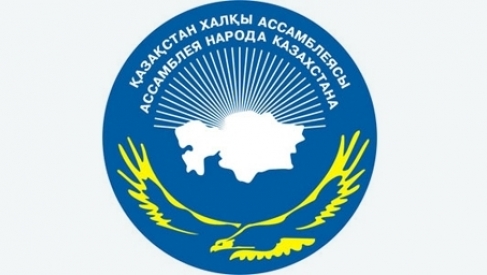20 years of Assembly of People of Kazakhstan – A Retrospective Review

By Muhammad Asad
Year 2015 marks 20 years of creation of Assembly of People of Kazakhstan. The Assembly was created firstly as an advisory and deliberative body under the leadership of President Nursultan Nazarbayev. Now today, the Assembly has became a public instrument for building a bridge between different social institutes of the country.
Kazakhstan became the first CIS country to turn its mind for creating one-of-a-kind interethnic institute. President Nursultan Nazarbayev, being the architect of Kazakhstani model of interconfessional and interethnic balance, strongly believes and repeatedly says that where there is an agreement— there is also prosperity. In other words, in a place where peace and calm reign there will also be unity and mutual understanding.
Positive experience of interethnic policy enforced in Kazakhstan received high recognition by global community and aroused interest of countries with similar multiethnic make-up of population. For instance, there is Kazakhstani centre of peace and agreement operating in London and presenting unique model of interethnic tolerance and public agreement. Special issues named «Kazakhstan: integrated array of unity and agreement» were published in several European languages.
Indeed, Kazakhstan is perhaps one of the few among post-Soviet countries with true stability. The country has seen no political mass-scale confrontations on ethnic or religious grounds.
International observers admit that the country’s authorities led by the President have been able to build up an internal policy that allows to actively promote an idea of developing a modern and competitive secular state.
Kazakhstan became a ground for conduction of civilizations’ intercultural dialog aiming to deepen understanding between the East and the West on key issues of modern world order.
The contribution of the Assembly of People has been recognized at the highest level and we remember that Kofi Annan, when visited Kazakhstan as Secretary General of United Nations, said that the country (Kazakhstan) is an example of interethnic agreement, stable and sustainable development for other world states. Pope John Paul II who visited Kazakhstan in 2001 spoke highly about Kazakhstani people as well.
However, the work has not finished. Role of the whole representative branch of government substantially changed. One of the most important new developments of constitutional reform is the increase of number of deputies to the lower chamber of the parliament— known as Mazhilis. The present day, 9 deputies are elected specifically from the Assembly. Government passed an approach paper, Doctrine of national unity, with aims, goals, and principles of national policy.
Kazakhstan, being a home for peaceful coexistence of more than 130 nationalities and several religious combines that present more that 40 confessions is an ideal ground for intercultural dialogue. In the last 20 years there were created 22 republican and regional national and cultural centres which unify 470 organizations of various levels.
In Kazakhstan there are more than 100 national schools operating and 170 Sunday-schools that teach 23 native languages. In three schools of national renascence there are 29 working departments on learning 12 native languages. Annual mass people’s celebrations Nauriz, Maslenitsa, Sabantuy and Christmas became a tradition.
Assembly of people of Kazakhstan established close collaboration with international organizations and institutes of foreign states. With the assistance of OSCE the Centre of Humanitarian Research of Problems of Interethnic Relations was created.
International connections of national and cultural centres with historical homelands are expanding and deepening. This is happening most actively in Azerbaijani, Armenian, Greek, Dungan, Jewish, Karachai-Balkar, Korean, German, Polish, Tatar, Turkish, Turkmen and Ukrainian expatriate communities. There are close relations with the regions of Russia bordering Kazakhstan.
There is yet another important aspect that has to be said about. Representatives of world confessions met four times in Astana, which became a centre of culture and spirituality, and found a solution for vital questions. This year Kazakhstan hosts Congress of Leaders of World and Traditional Religions for the fifth time.
The dates of the V Congress of Leaders of World and Traditional Religions are set to be June, 10-11. The main theme of the congress is a dialog of religious and political leaders for the sake of peace and development.
Participants of this forum include representatives of traditional religions: Christianity, Islam, Judaism, Buddhism, Taoism, Shintoism, Hinduism as well as representatives of large international organizations. The first congress took place in Astana in September, 2003; the participants were religious leaders and guests of honour from 13 countries of Europe, Asia, Africa and Middle East. The congress is held once every three years.
Against a backdrop of today’s strained situation in different regions of the world such as armed conflicts and attempts of individual groups and organizations to unleash new civilizational defiance, the dialog between leaders of world’s religions becomes increasingly relevant. The time has come to find a formula of optimal cooperation model for religious hierarchs and political leaders for the sake of sustainable peace and agreement on our planet.
It is necessary to achieve a situation where people stop equate notions of terrorism and religion.
It is important to demonstrate quite a reachable thing: peaceful coexistence of representatives of different religions, faiths and beliefs. It is important to make people that found themselves drawn by false pretences into terrorist and extremist activity to realize the value of dialog and value of human life. And it is important to hear the voice of religious leaders no less than the voice of political leaders.
